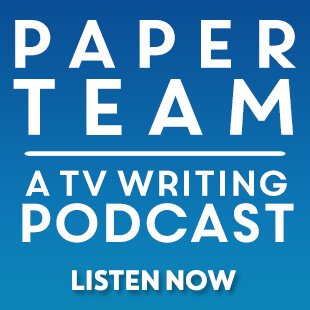Television writing is, for all intents and purposes, the core subject of this website.
It would be foolish to recap seven years worth of TV writing-related content and advice in a post.
Let’s do it anyway.
We began our journey by tackling a very simple problem: how to land that first job in television. Yes, that “simple” comment was sarcasm.
It was shortly thereafter that I started mentioning a few of my favorite TV business books, and some great TV writing books.
Note to self: make another updated list. Other note to self: add previous note to self to to-do list.
June 2010 meant kick-off time in South Africa, which led me to write what the World Cup can teach you about TV writing. Hint: it does not involve corruption.
A big event of the past seven years was also my “spec experiment” in 2013 of writing and publicly publishing my spec pilot of Star Trek: Terran.
I explained my thought-process in a much-debated post entitled “Breaking Rules” — Speccing And Sharing Star Trek: Terran.
Television is a collaborative medium. We’re not writing novels, we’re making episodic scripts. And we should be learning from each other.
Sadly, besides produced scripts being traded in the shadows of Internet, there’s almost no TV writer, aspiring or pro, willing to openly share their work.
And I have to say: it’s weird.
I’m not talking about sharing projects currently in development/production or making the rounds. What I’m referring to is all the other stuff. The failed pitches, the finished projects, the canceled ventures.
This isn’t a question of getting/wanting validation from the outside. It’s obvious most writers already have a group, or an entourage whose opinion they care about. It’s about sharing the craft. The experience of TV writing.
That’s one of the reasons why I put Terran out there. Like any spec, it’s an ongoing work in progress, and I do welcome any feedback I get. Yet, I don’t expect it to be made (copyright issues notwithstanding). I put it out, in part, to share the process (good and bad).
I concluded with the following sentiments:
Writing can be a personal affair, but TV is communal. It’s teamwork. We’re all in this together.
I wish writers were more willing to openly share their work, especially when it comes to television.
It’s high time we started learning from each other’s craft. Why not become a team writer yourself?
Sounds like people need another bump to the bum!
Moving on to one of our most popular TV writing series–
“Screenwriting Lessons From” is a great little series of articles where I reverse-engineer screenwriting lessons from finished series. We’ve tackled Coupling, Friends, Parks & Recreation, Farscape and Six Feet Under.
Last December, this tweet happened:
I think I need to study this… http://t.co/3vZfr87x05
— Rockne S. O'Bannon (@Rockne_S) December 17, 2014
Yes, that’s a tweet from motherfrelling Farscape creator Rockne S. O’Bannon praising my “Screenwriting Lessons from Farscape” post! I’m still in shock that happened.
And speaking of professional TV people and popular series (greatest transition ever?), we’ve had since last year our “Profiles of Television” interview series, which mixes both TV writing and TV business advice. Posted as of today:
– Kiyong Kim – TV Writing Fellow (Nickelodeon/NBC WOTV/CAAM)
– Meghan Pleticha – TV Writer’s Assistant & Script Coordinator (Silicon Valley/Married)
– Jill Weinberger – TV Writer/Story Editor (Chicago Fire)
– Matt Thilenius – TV Literary Assistant (CAA)
(and someone else we had to remove for secret reasons)
Fun fact: this is just the beginning! I’ve already got four upcoming interviews in the can, ready to fire off. All that’s left to do is the transcript for each. Shouldn’t take more than hours and hours of work.
Of course, our big takeaway for most people have always been my annual spec script lists. I’ve published, so far, 13 spec lists since our creation (or, more accurately, since 2009).
It’s fair to say that over the past few years, our focus has slowly shifted to the TV writing fellowships and specs.
The first venture into the “how-to” spec guide was with the super-duper Canadian police procedural Flashpoint and our “Spec Flashpoint” series. I broke down over seven articles how I specced that show. Everything from research to, well, development.
Let’s not forget also the various how-to articles on spec scripts, mainly how fresh a show should be to spec it, and ten spec writing rules (and why you should care).
Over the past seven years we’ve had a ton of other articles on TV writing, including:
– The difference between a “spec script” and “spec pilot”
– How to land a writing gig on a TV show
– Script Registration 101
– How to get a TV agent
– How late you can spec something
– Animated vs. live-action specs
– Is a pilot script needed when pitching?
It has been a very fruitful journey so far, and I hope you continue living it with us.
Write on.





